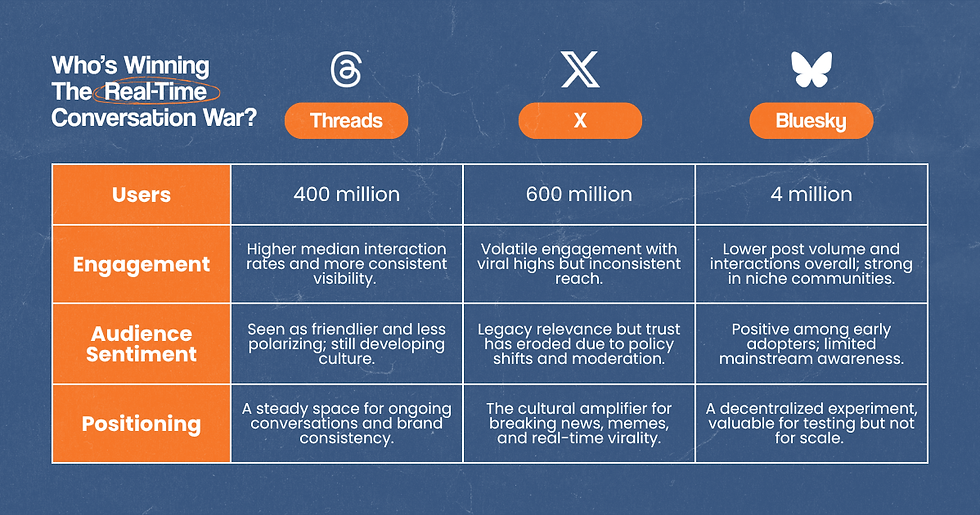The Sky Isn't Falling: Facebook's November 2014 Changes
- Eric Elkins

- Nov 24, 2014
- 3 min read
Updated: Jun 19, 2020

Here’s the thing about Facebook. It’s always changing. The news feed algorithm gets tweaked, the ad standards are adjusted, its privacy policy gets better (or worse). That’s just how it is. If your target audiences are on Facebook, then you just have to suck it up and accept that.
On Friday, Nov. 14, Facebook announced that it did something it does all the time: it made a change to the Facebook algorithm. This change—which won't kick in until January, p.s.—is designed to limit the frequency that promotional-only posts appear in the Newsfeed.
The reactions in the social media and content marketing communities were predictably over-the-top.
“Facebook Organic Reach is Dead!” implied one headline.
“Expect your reach to drop even more than it’s already dropped,” wailed another article.
On and on, the Cassandras of the digital media world tore at their hair, donned sackcloth and ashes, and wrote a bunch of overblown articles about the villainous social platform that dared to make a change to the way its users interact with content.
Listen, Chicken Little, the sky isn’t falling.
Facebook has two major goals:
Make money
Increase daily engagement by users in order to assist with item 1.
When Facebook users (who are less and less satisfied with the platform, but still feel compelled to use it) find their newsfeeds awash in marketing messages and calls-to-action, they become more disenchanted and spend less time on the platform. And with the majority of the ‘Book’s users accessing the social network via mobile, that tiny canvas becomes ever-more critical.
The most recent announcement was more of a confirmation of something most of us already knew than a bombshell. Facebook has been ratcheting down organic reach from fan pages since fall of 2013. The recent announcement just codified this change, stating that especially salesy and promotional posts will get even less visibility than their more relevant and interesting counterparts.
With that all in mind, how will WideFoc.us operate differently when it comes to our clients and their messaging?
Short answer: we won’t.
Longer answer: no, really, pretty much can’t think of anything that changes.
And that’s because one thing has never changed from the very beginning of social media’s emergence as a marketing and PR tool: content must be relevant and interesting to target audiences if they’re going to respond (with likes, shares, comments, clicks to the website, conversions, whatever).
It may help to think of social media as a cocktail party. If you’re a Realtor®, for instance, you wouldn’t walk into a party and demand everyone buy a house from you. You wouldn’t lead off your conversations with a sales pitch. You might share your expertise about the hot neighborhoods in the city, or what you think will happen with interest rates, if asked. And if a party guest says she’s looking for a new home, you’d likely hand over your card and invite her to contact you with questions.
A well-designed social media plan uses multiple forms of content across the platforms where audiences are gathering, providing value, in order to generate awareness, trust, and credibility. When an online community is vibrant and engaged, driving behaviors like clicks and sales becomes more a matter of encouragement than out-and-out pitching.
So, no, the sky isn’t falling due to the most recent Facebook update. But we do encourage you to take this opportunity to think about how you’ve been engaging and interacting with your online communities. Do you need to make some changes?
—Tag-teamed by Eric Elkins and Leah Charney










